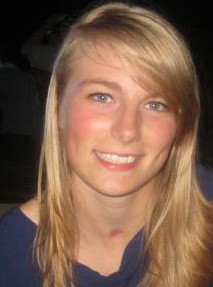They are key to the future of the profession, but what are the next generation of veterinary surgeons looking for from their first job?
To find out, The Veterinary Business Journal headed up to SPVS’ “Your First Job” graduate seminar in Lancaster.
NAME: Zara Chowdhury
AGE: 22
COLLEGE: RVC
FIRST SALARY EXPECTATION: £25,000 a year
MY FIRST JOB: “I want to move into mixed practice where I will get the experience I want, but also the day-one support I need.
“There are lots of fears of course, and that is natural. Apart from the various clinical concerns, I am not looking forward to the financial side of things, pricing things up wrong and things like that.
“We have not done any business extramural studies. We have had a few business lectures, but it is something I would have liked more of – particularly earlier on in my course, so it would be good to get some kind of induction in the business side of things.”
WORK/LIFE BALANCE: “This is important to me, but I know I have to be flexible to get on.”
WHAT DID YOU GET FROM THIS EVENT? “It has helped a lot to see the various options laid out in such an accessible way.”
NAME: Fiona Laurie
AGE: 21
COLLEGE: University of Glasgow
FIRST SALARY EXPECTATION: £20,000 a year
MY FIRST JOB: “I grew up on a farm, so I have always wanted to move into mixed practice.
“Hopefully that job will provide broad experience on the clinical side, but it will be very important to me to see that I will be supported in the right way.
“Coming from a farming background, I have grown up knowing the importance of getting it right from a business perspective, but I would like to be shown the protocols and the pricing structures and have the computer systems all explained to me properly.”
WORK/LIFE BALANCE: “If the rota was really bad I would look elsewhere, as having balance is important to this generation, but we are all coming into this job with our eyes open and I am not scared of hard work.”
WHAT DID YOU GET FROM THIS EVENT? “Free wine and a lot of ideas about the diversity of career options open to those getting a veterinary degree.”
NAME: Alexander Kilgore
AGE: 27
COLLEGE: RVC
FIRST SALARY EXPECTATION: US$60,000 to US$70,000 (£35,000 to £41,000) a year
MY FIRST JOB: “I want to move straight into first opinion, small animal practice back in the United States, where the money is better.
“Ideally, in a supportive environment with a mentor to help me grow and develop as a vet and as a business professional.
“For me, there isn’t enough emphasis on the business management side of things, but I think there is more that students could do to make themselves more business-savvy.”
WORK/LIFE BALANCE: “This is a big deal, I have no problem doing out-of-hours, but I certainly don’t want to be working on a crappy rota for crappy pay.”
WHAT DID YOU GET FROM THIS EVENT? “It has shown me there are plenty of other career options in this field – particularly in industry and the military.”
NAME: Alice Griffiths
AGE: 25
COLLEGE: University of Cambridge
FIRST SALARY EXPECTATION: £25,000 a year
MY FIRST JOB: “Will be working with small animals for a boss sympathetic to the fact I still have a lot of learning to do. I want some responsibility, but at the same time I will want guidance when needed.
“We have had a few talks about the financial side at university, so I feel I know what will be expected in that direction, but some sort of written guidelines on the business side of things would be great.”
WORK/LIFE BALANCE: “The more hours asked of me, the more important it would be for me to get some flexibility in those hours – I still need to have a life.”
WHAT DID YOU GET FROM THIS EVENT? “It’s a great chance to meet my peers from other universities and to pick up some really good ideas from the speakers here. I am just surprised by how few people decided to come.”






 It has been suggested that the restricted number of graduates being able to go directly into clinical practice would mean that more veterinary students would be encouraged to take a different career route (research or veterinary education, for example). But if the aim is not to produce veterinary professionals, why not instead increase the intake on veterinary biosciences courses for those more interested in research?
It has been suggested that the restricted number of graduates being able to go directly into clinical practice would mean that more veterinary students would be encouraged to take a different career route (research or veterinary education, for example). But if the aim is not to produce veterinary professionals, why not instead increase the intake on veterinary biosciences courses for those more interested in research?


